
What can we learn from the life of Glen Campbell, particularly his later years when he, his family, and his band were struggling with the consequences of his Alzheimer’s disease that robbed him of his memory, changing his personality?
What are the ten warning signs per the Alzheimer’s Association, and how can we witness them in Glen Campbell’s story? How did his personality transition from the early stages of Alzheimer’s, then to the middle and advanced stages?
How was Glen Campbell able to record a final album titled Ghost on the Canvas, where several songs explored his experiences with Alzheimer’s, and go on the road again to promote this album, while he was in the early stages of Alzheimer’s?
YouTube script, with Amazon book links:
https://www.slideshare.net/BruceStrom1/glen-campbell-and-his-struggles-with-alzheimers-with-ten-signs-of-alzheimers-disease
YouTube video: https://youtu.be/F9NmDiiPowI
Glen Campbell began his country music career as a studio musician, in this position he was employed by record companies and recording studios to provide high-quality tracks for records released by many bands. Jimmy Page of Led Zeppelin also began his career as a studio musician. Glen Campbell released sixty-four albums over five decades, including many gold and platinum albums, selling over 45 million albums worldwide, earning multiple Grammy awards.[1]
KIM CAMPBELL, HIS WIDOW, DISCUSSES GLEN’S STRUGGLE WITH ALZHEIMER’S
The widow of Glen Campbell wrote a touching memoir about Glen Campbell and his family struggles with the challenges posed by his cognitive decline caused by Alzheimer’s disease.
Why was she so public about his challenges? People who are in the early stages of cognitive decline are often capable of normal life activities, and indeed, continuing with social activities is helpful for the patient, though it poses challenges. In 2010 Glen Campbell recorded his farewell album, Ghost of the Canvas, where several of the songs were inspired by these challenges.
Should Glen and his band tour the country, giving concerts? What if Glen Campbell’s condition lead to embarrassing incidents on-stage? His response was simply: Let the fans know that I am in the early stages of Alzheimer’s. His children followed him into a musical career, they were the core of his band, and the other musicians had toured with Glen for years and had the patience to deal with his baffling behavior both in rehearsals and on-stage. As with many performers with Alzheimer’s, once they are on-stage the rush gives them much needed lucidity, and since Alzheimer’s primarily affect short-term memory, they can perform songs learned long ago until the last stages of the disease.
What is the difference between Alzheimer’s and dementia? Alzheimer’s disease accounts for about 60% to 80% of dementia cases, other cases of dementia are caused by stroke or high blood pressure, or other neurological conditions. Quite often dementia can be diagnosed with brain scans and other medical tests in addition to the standard cognitive tests.
KIM DATES, THEN MARRIES GLEN CAMPBELL
The story of Kim and Glen Campbell is helpful because, though the early years of their marriage were rough, these dysfunctions were largely overcome, and they had many years of a happy marriage before Alzheimer’s started to slowly change his personality.
Kim met Glen Campbell in 1981 when she was twenty-three and he was forty-five, and although she was his fourth wife, they were married for more than three decades. He was married to his second wife for about fifteen years and was married for about five years to his first and third wives.
Can these memoirs be attacked by the standard of TMI, or Too Much Information? His children by his other wives certainly thought she revealed too many intimate details. After all, what child wants to read about such details about their father? She discussed their intimate life, and how her insistence on delaying intimacy until he was serious about their relationship did strengthen their eventual marriage. Church was an important part of both her life, and also Glen’s family. Some members of the Campbell family actually moved into their mansion to encourage Glen to live a sober and Christian life. In conclusion, IMHO, these details are useful if you want to track how their relationship changed as his dementia became apparent and worsened.
Popular musicians who often tour to promote their albums have troubled marriages. Once they have children, the wife stays home to raise them while the husband tours, and that can be a lonely life, and the band often drugs and drinks between performances, not to mention the constant temptations by groupies who collect around the band. These problems are sometimes lessened when both husband and wife perform together.
After Kim and Glen dated for some months, Glen disappeared and restarted his relationship with the famed country music singer Tanya Tucker. They broke up again after a year, she often partied with Glen and did not temper his drinking and drugging while on tour. When they started dating again, Glen promised that he was over Tanya Tucker, that she wasn’t good for him. Kim and Glen had three kids together, and Glen had addiction issues while their kids were younger, partially out of loneliness while touring, drying out in rehabilitation clinics several times. After a drug filled bender with Mick Fleetwood of Fleetwood Mac, she threatened to leave him if he didn’t kick the drug habit, so drinking was the major issue after that.
Often people wonder if alcohol or drug abuse would somehow trigger or cause dementia, but that is unlikely. Dementia usually manifests itself in your seventies or afterwards, although for some people it manifests itself earlier. For example, Rita Hayworth likely came down with dementia in her fifties. Quite likely, although we do not know for sure, these aren’t triggers, though they likely hasten the manifestation of Alzheimer’s, or maybe not, as Glen Campbell was in his seventies when he was diagnosed with Alzheimer’s.
Kim Campbell remembers that her husband Glen was often a little bit crazy when he was high on cocaine. The antiquated King James translation has Matthew exhorting us to pray in a closet so you can pray in secret, and Glen would insist that they pray in a closet, rattling off Bible verses judgmentally.
But Kim remembers, “Fear at night led to frustration in the morning. That’s because Glen never remembered what he had put me through. He’d wake me up with a good morning kiss and return to being the loving man with whom I had fallen in love.” “He was a completely different person.”
Her description of this episode is similar to what she struggled with when he developed dementia many years later, except that the switch from the insane to the apparently normal is sometimes instantaneous. This demonstrates that the demented coping mechanisms are similar to those acted out before dementia, except they are often more unhinged.
Which of the big three magical cures, healthy diet, exercise, and sleep, do scientists believe would slow the manifestation of Alzheimer’s? The answer is exercise, as the brain is hungry for oxygen, consuming twenty percent of oxygen intake, and the more exercise, the more oxygen flows to the brain. Many scientists say that social interaction is the fourth magical cure, and that certainly benefits those in the early stages of dementia.
All of Kim’s and Glen’s children became talented musicians themselves, and after their schooling was completed, the whole family managed and participated in his career and many tours. That seemed to be the ultimate solution, this solved the loneliness that was at the root of his drinking and drugging addictions. Their family spent many happy years together touring before Alzheimer’s struck Glen Campbell.[2]
KIM’S RELATIONSHIP WITH GLEN CAMPBELL CHANGES
The Alzheimer’s Association has Ten Early Signs and Symptoms of Alzheimer’s:
Sign 1: Memory loss that disrupts daily life.
“One of the most common signs of Alzheimer’s disease, especially in the early stage, is forgetting recently learned information. Others include forgetting important dates or events, asking the same questions over and over, and increasingly needing to rely on memory aids or family members for things they used to handle on their own.”
What’s a typical age-related change? “Sometimes forgetting names or appointments but remembering them later.”
Glen Campbell had always preferred to be the alpha male protecting and providing for his family, but he started becoming more dependent on his wife, sometimes calling her mommy, which really bothered her. Kim remembered, “Glen repeated himself as he had never done before. He also started forgetting lyrics to songs he’d sung thousands of times. I laughed off these lapses as senior moments,” as they had a twenty-two-year age difference. About this time his children became part of his band, which helped.
Like many celebrities, Glen had other people handling his business and finances, so he perhaps had less problems with Sign 2: Challenges in planning or solving problems.
“Some people living with dementia may experience changes in their ability to develop and follow a plan or work with numbers. They may have trouble following a familiar recipe or keeping track of monthly bills. They may have difficulty concentrating and take much longer to do things than they did before.”
What’s a typical age-related change? “Making occasional errors when managing finances or household bills.”
Glen started developing odd habits. When they had guests, Glen would insist that they park in certain places that only made sense to him. He started counting his wife’s shoes, pants, shirts and dresses. He started following his wife around the house. Once she walked around the pool a dozen times, he followed her.
Glen Campbell started showing Sign 3. Difficulty completing familiar tasks.
“People with Alzheimer’s often find it hard to complete daily tasks. Sometimes they may have trouble driving to a familiar location, organizing a grocery list or remembering the rules of a favorite game.”
What’s a typical age-related change? “Occasionally needing help to use microwave settings or to record a TV show.”
When it came time for Glen to renew his license, Kim had to drive him to take the test, since he could not find the DMV office. Although he flunked the written test, he passed an oral test. But she still insisted that he no longer drive.[3]
GHOST ON THE CANVAS: FAREWELL ALBUM AND TOUR
Glen knew that his cognition was failing him, he was now seventy-four. When he was sharing his struggles, his anecdotes, his jokes and wisdom with his bandmate Julian Raymond, these emotions found their way into several songs on his farewell album, Ghost on the Canvas. This stanza was in the song, A Better Place:
“Some days I’m so confused, Lord,
My past gets in my way;
I need the ones that I love, Lord,
More and more each day.
One thing I know,
This world has been good to me,
But a better place awaits, you’ll see.”
Indeed, Sign 4. Confusion with time or place
“People living with Alzheimer’s can lose track of dates, seasons and the passage of time. They may have trouble understanding something if it is not happening immediately. Sometimes they may forget where they are or how they got there.”
What’s a typical age-related change? “Getting confused about the day of the week but figuring it out later.”
This is what Glen Campbell wrote in the liner notes for the album:
“All of my little roller-coaster rides, the laughter, tears, successes, and failures, these are all part of who I am now.” “The ‘now’ Glen has all the ghosts of the old Glens still hanging around.”
At this time, the doctor offered a clear diagnosis of Alzheimer’s. Kim asked the doctor if Glen could continue his five-week tour to promote his new album.
The doctor answered, “I’d encourage him to tour. That stimulation may well help him function longer. Yes, encourage him to play. And encourage him to remain engaged with family and friends. Social isolation expedites cognitive decline.”
Kim remembered, “All his strange behaviors suddenly made sense. The little things that had been annoying me now evoked compassion. No wonder he followed me everywhere. No wonder he was jealous of anything that competed for my attention. I was his anchor. He needed me to feel secure. Now that need was greater than ever.”
Which leads us to Sign 5. Trouble understanding visual images and spatial relationships.
“For some people, having vision problems is a sign of Alzheimer’s. This may lead to difficulty with balance or trouble reading. They may also have problems judging distance and determining color or contrast, causing issues with driving.”
Which is why California requires that doctors inform the DMV of an Alzheimer’s diagnosis, which is why Glen’s driving license was revoked. [4]
What’s a typical age-related change? “Vision changes related to cataracts.”
This reminds me of a business associate, his mother had moved to Miami when she was elderly, she had few friends and visitors, all she did was watch television. He noticed her mind was slipping, the doctor said the cause was cataracts, she was nearly blind. Without the visual stimulation, her mind was starting to shut down, but after her successful cataract surgery, her mind recovered, though she was still as ornery as ever.
Glen was aware that he had Alzheimer’s, but he said he didn’t feel it, though his behavior was becoming more erratic. He had more problem with the lyrics to the newer songs, he practiced them over and over, they setup a teleprompter, both for practice and the tour.
Glen was insistent that they tour for the album. Kim asked, “I love your attitude, honey,” “but there are some things to consider. If you repeat yourself onstage or act a little strange, people might start talking. What might the press say?”
Glen insisted, “Tell them the gosh-darn truth. Tell them I’ve got Alzheimer’s.” They also decided to tell the world the story, they produced a rockumentary of his final tour, named Glen Campbell: I’ll Be Me, which was a success, his admission had evoked compassion and encouragement from his fans.
Rehearsing was a nightmare. Kim remembers, “Each time a song kicked off, Glen held up his hand. Wrong tempo, start again. Still not right, start again. Then the tempo was okay, but the speaker, the sound, the key was off.” “Glen was annoyed the band was not congealing,” though he was the only one who thought so. “But Glen’s mind was all that mattered. He was the star, and that star had to be placated, even though the star was not well.”
But when “Glen stepped in front of the audience and, after days of anguish and sometimes repellant behavior, he became Glen Campbell. The star was reborn. He turned back into a seasoned artist who knew the difference between rehearsing and performing a show. It was the audience that made the difference.”[5]
What are some other signs signifying Alzheimer’s? Sign 6. New problems with words in speaking or writing.
“People living with Alzheimer’s may have trouble following or joining a conversation. They may stop in the middle of a conversation and have no idea how to continue or they may repeat themselves. They may struggle with vocabulary, have trouble naming a familiar object or use the wrong name (e.g., like calling a watch a hand-clock).”
What’s a typical age-related change? “Sometimes having trouble finding the right word.”
Sign 7. Misplacing things and losing the ability to retrace steps.
“A person living with Alzheimer’s disease may put things in unusual places. They may lose things and be unable to go back over their steps to find them again. He or she may accuse others of stealing, especially as the disease progresses.”
Early on, Glen suspected that a thief was stealing his socks. During the tour Glen’s behavior deteriorated. “During one show Glen was distracted by the air-conditioning, stopped singing, and asked for a jacket. During another show, he simply stopped singing and asked out loud where he was and what he was doing. The audiences were invariably beautiful,” “they simply applauded wildly until he started singing again.”
LATE STAGES OF ALZHEIMER’S DISEASE
In his last concert, he started yelling at the band, but then “apologized to the band and the audience and laughed at the absurdity of it all. Everyone onstage smiled, and the audience stood on their feet and cheered him.” Glen had slipped into the late stages of Alzheimer’s; his touring days were over.[6]
What’s a typical age-related change? “Misplacing things from time to time and retracing steps to find them.”
Sign 8. Decreased or poor judgment
“Individuals may experience changes in judgment or decision-making. For example, they may use poor judgment when dealing with money or pay less attention to grooming or keeping themselves clean.”
Early on Glen had insisted on taking showers with Kim, which was later a blessing, as it solved a problem others have with Alzheimer’s patients, as they typically hate taking showers.
What’s a typical age-related change? “Making a bad decision or mistake once in a while, like neglecting to change the oil in the car.”
Another sign of Alzheimer’s is: Sign 9. Withdrawal from work or social activities.
“A person living with Alzheimer’s disease may experience changes in the ability to hold or follow a conversation. As a result, he or she may withdraw from hobbies, social activities or other engagements. They may have trouble keeping up with a favorite team or activity.”
What’s a typical age-related change? “Sometimes feeling uninterested in family or social obligations.”
This was a sign that never really manifested itself in Kim’s memoir, Glen always felt loved, Glen always was encouraged to perform to his abilities. Music also has a healing quality for those with Alzheimer’s. In the end, though, there came a time when performing publicly was no longer possible.
In the later stages of Alzheimer’s, Glen Campbell couldn’t watch television because he couldn’t follow the plot or the sports match. Playing golf with his friends became a challenge, he was paranoid about his friends stealing his clubs. On occasion he would momentarily forget who Kim was.[7]
Which brings us to the last sign of Alzheimer’s, Sign 10. Changes in mood and personality.
“Individuals living with Alzheimer’s may experience mood and personality changes. They can become confused, suspicious, depressed, fearful or anxious. They may be easily upset at home, with friends or when out of their comfort zone.”
What’s a typical age-related change? “Developing very specific ways of doing things and becoming irritable when a routine is disrupted.”
The Campbell family had moved to Nashville since their children were pursuing their musical careers there. Kim remembers a problematic Christmas party with family and friends. “When the guests arrived, though, Glen was inhospitable. He wandered off and wouldn’t speak to anyone. Then his daughter Ashley brought out her banjo and, once again, the magic of music did the trick. Glen picked up his guitar and played flawlessly. Within seconds, he went from sullen to serene. He sang, laughed, and socialized as though he were the healthiest man alive. A Christmas miracle.”[8]
Soon afterwards, Kim decided that Glen could no longer go out in public. Taking care of him became burdensome, they placed him in an Alzheimer’s facility, but after he struck out at the staff in demented anger had to take him back home. Quite often, Alzheimer’s patients will strike out in anger and frustration. Finally, they checked him into a new memory care home, and the children joined the staff so Glen would feel more at home. By the time he was placed in hospice care, his memory was nearly completely gone.[9]
CONCLUSION
Glen Campbell’s daughter Ashley testified before Congress to lobby for increased funding for Alzheimer’s research. She states, “Alzheimer’s is a disease that robs people of their lives while they are still living them, and it robs families of the people they love while they are still standing in front of their eyes. I think a person’s life is full of memories, which is exactly what this disease takes from you.” “Now when I play banjo with my dad, it’s getting harder for him to follow along, and it’s getting harder for him to recall my name.” “Someday my dad might look at me, and I will be absolutely nothing to him.”[10]
Get checked. Early detection matters. Medicine has advanced such that brain scans and other procedures can diagnose Alzheimer’s in addition to the standard cognition tests.
OUR FIRST VIDEO ON ALZHEIMER’S DISEASE
My interest in Alzheimer’s patients began when I volunteered to serve as the Treasurer for my over-55 condominium association. I intervened to halt the foreclosure of a destitute owner suffering from advanced Alzheimer’s disease so he could be assigned a guardian by the court so he would not be quickly and cruelly thrown out on the street but could be placed in an acceptable and humane lockdown facility for Alzheimer’s patients before his condominium was put up for sale. For this intervention, a large majority of our board censured me and asked me to resign from my position.
We also discussed how Alzheimer’s patients can be difficult to deal with, how the disease not only steals their short-term memory and cognition, but also steals the patients of their moral compass, how their life is often ruled solely by their emotions, how they are incapable of taking care of themselves. We discussed why many Alzheimer’s patients are angry, and sometimes strike out physically; this happened during our singer’s late stages of Alzheimer’s.
DISCUSSING THE SOURCES
Kim Campbell’s account of her marriage to Glen Campbell is, by far, the most informative profile of an Alzheimer’s patient as his disease progresses. AARP has a review of this book by Kim Campbell:
https://www.aarp.org/entertainment/books/info-2020/kim-glen-campbell-memoir.html
Kim Campbell’s blog is at: http://www.careliving.org/
There is a book by a biographer of Rita Hayworth, who was one of the first celebrities who publicly admitted they were suffering from Alzheimer’s, and her caretaker helped to raise funds for the then new Alzheimer’s Association. The AARP also has articles on how Rita Hayworth and Tony Bennet suffered from Alzheimer’s, among other profiles.
In the future we will review Travelers to Unimaginable Lands, which are stories of Alzheimer’s patients and their caregivers which the author has counseled or met in support groups. If you are a caregiver, it is important that you join a support group. These stories illustrate that Alzheimer’s is not a disease that you catch, it is a disease that progressively grows worse, and if the caregiver is part of a dysfunctional family, these dysfunctions will only worsen, causing increasing resentment even by caregivers that genuinely try to be forgiving of their loved one’s demented behavior.
We will also review Oliver Sack’s famous book, The Man Who Mistook His Wife for a Hat, which includes both case studies of patients with dementia and other cognitive dysfunctions. The 2023 Dementia Overview reviews many of the types of dementia.
[1] https://en.wikipedia.org/wiki/Glen_Campbell
[2] Kim Campbell, Gentle On My Mind, In Sickness and In Health with Glen Campbell (Nashville, Nelson Books, 2020), pp. 1-173, and https://en.wikipedia.org/wiki/Glen_Campbell
[3] Kim Campbell, Gentle On My Mind, Chapter 16, pp. 177-182. Ten early warning signs found at https://www.alz.org/alzheimers-dementia/10_signs
[4] Kim Campbell, Gentle On My Mind, Chapter 17, pp. 185-189.
[5] Kim Campbell, Gentle On My Mind, Chapters 18-19, pp. 190-206.
[6] Kim Campbell, Gentle On My Mind, Chapter 21, pp. 227-229.
[7] Kim Campbell, Gentle On My Mind, Chapter 22, pp. 233-237.
[8] Kim Campbell, Gentle On My Mind, Chapter 23, p. 243.
[9] Kim Campbell, Gentle On My Mind, Chapters 24-27, pp. 231-283.
[10] Kim Campbell, Gentle On My Mind, Chapter 21, pp. 225-226.

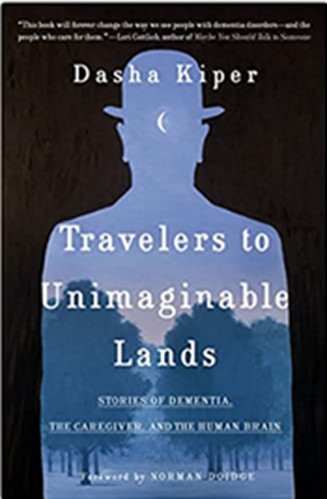
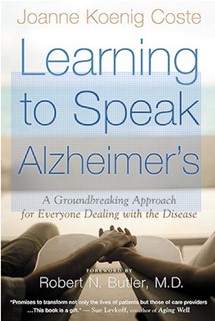
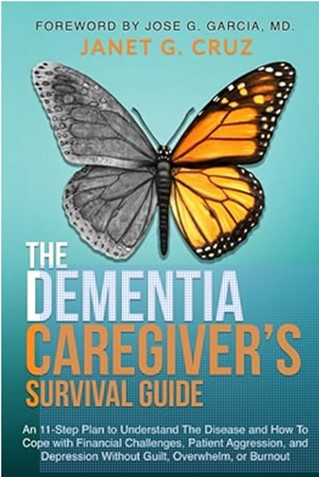


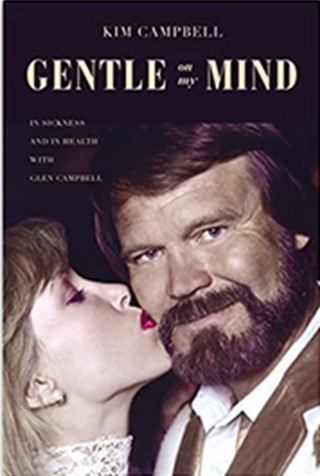
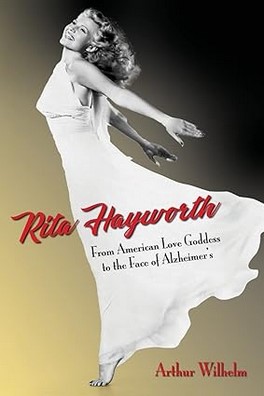

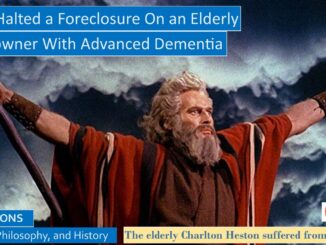
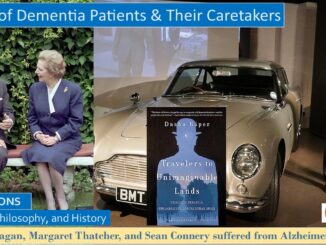
9 Trackbacks / Pingbacks